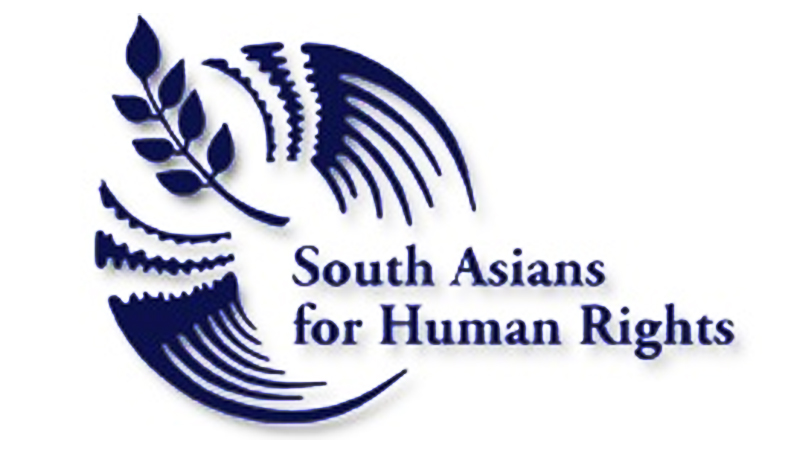Lifting EU sanctions will unlikely lead to an improved human rights situation in Burma
Altsean-Burma
Joint Press Release
Lifting EU sanctions will unlikely lead to an improved human rights situation in Burma
Paris, 24 April 2013 – FIDH (International Federation for Human Rights) and its member organization Altsean-Burma regret that the European Union (EU) has discarded its own benchmarks for reform in order to dismantle sanctions against Burma/Myanmar.
The disposal of this important and legitimate instrument to push forward positive change in the country is inconsistent, as mass atrocities continue in Kachin state and targeted violence endangers Rohingya and other Muslims in the western and central regions. In addition to undermining its own credibility, the EU decision threatens to decelerate the pace of reforms and prolong a state of impunity in Burma/Myanmar.
In an open letter to the EU Member States last month, FIDH and Altsean-Burma noted that, despite some positive steps, the Government of Burma/Myanmar has failed to meet the conditions outlined by the Council of the EU in its 26 April 2012 decision to suspend sanctions. Those include the unconditional release of all political prisoners, the end of conflict in Kachin, improved humanitarian assistance, and enhanced welfare of the Rohingya.
Since the 26 April 2012 decision, approximately 200 political prisoners – including new detainees – have remained in prison. The war in Kachin state also has escalated with military air-strikes on civilian targets, and deadly violence targeting Rohingya and Muslims has broken out in Arakan state and the Mandalay and Bago Divisions, displacing more than 120,000 people. All of these human rights violations have taken place with the participation, encouragement, or complicity of state authorities. Against this backdrop, the removal of sanctions sends a dangerous message that the EU’s own human rights principles are disposable.
By lifting sanctions, the EU carries the onus to prove that its engagements, as well as the influx of European companies, will lead to an improved human rights situation in the country. FIDH and Altsean-Burma urge the EU to guarantee that victims of human rights abuses caused by European companies will have access to remedies that are available in its Member States, in the absence of legislative, institutional, and policy reforms in Burma/Myanmar that will halt impunity and provide meaningful legal remedies.
In light of the EU’s commitment and responsibilities, FIDH and Altsean-Burma recommend that the EU:
Push harder for reform of the legal framework (including of the 2008 Constitution) to make it compliant with international human rights law; encourage the Government of Myanmar to ratify and implement all main international human rights treaties, including the ICESCR, the ICCPR, and WILO Conventions 98, 105, 100, 111, 138 and 182;
Support the establishment of an office of the United Nations Office of the High Commissioner for Human Rights to monitor and support the protection of human rights and the implementation of the international human rights agreements;
Monitor closely the work of the Committee on Political Prisoners to ensure that it is credible and transparent and indeed leads to the release of all remaining political prisoners in Burma/Myanmar;
Condemn the institutional and systemic policies of discrimination, prejudice, and ethnic cleansing and propaganda of hate that have led to and encouraged the widespread and coordinated attacks against the Rohingya and Muslim communities;
Compel the Government of Burma/Myanmar to uphold all prior declarations and commitments to provide full access and facilitate the provision of humanitarian aid in the Arakan and Kachin areas and to suspend all military operations;
Ensure full transparency of foreign business activities in Burma/Myanmar by requiring disclosure of details of investments and all business relationships; require investors to carry out initial and ongoing human rights due diligence; and require public reporting by foreign investors in Burma/Myanmar of their human rights policies, environmental and social risks, the impacts of their activities, and measures taken to mitigate negative impacts; and
Ensure affected communities have access to effective remedies and, in particular, facilitate access of victims to courts in the home country of companies active in Burma/Myanmar.
Press contacts
Arthur Manet (French, English, Spanish) – Tel: +33 6 72 28 42 94 (in Paris) – Email : presse@fidh.org
Audrey Couprie (French, English, Spanish) – Tel: +33 6 8 05 91 57 (in Paris) – Email : presse@fidh.org
Follow us on Twitter.
No virus found in this message.
Checked by AVG – www.avg.com
Version: 2012.0.2127 / Virus Database: 3162/5771 – Release Date: 04/24/13
Category: Media Monitoring






